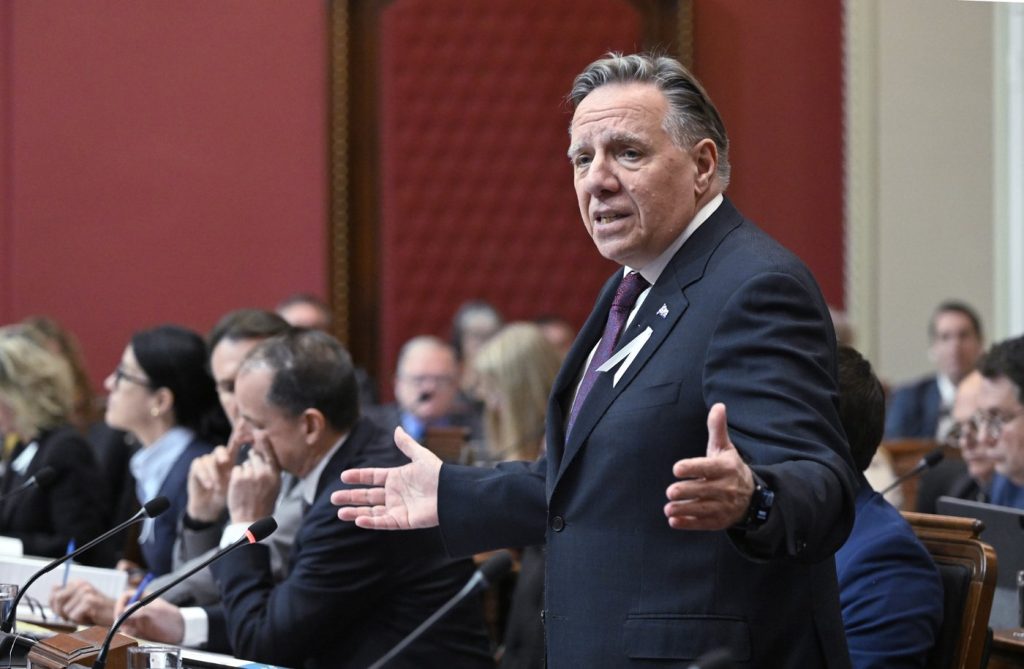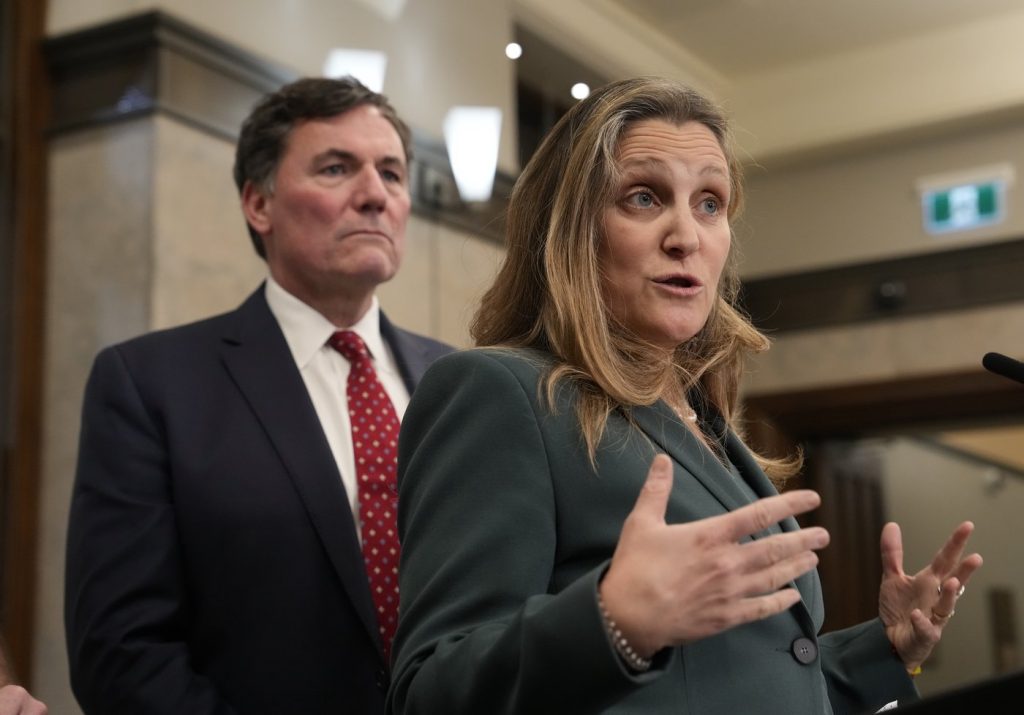Hundreds of thousands of Quebec public sector workers on strike today
Posted November 6, 2023 4:00 am.
Last Updated November 6, 2023 6:55 pm.
MONTREAL _ Quebec public sector workers holding a one-day strike today over lagging contract negotiations with the provincial government say they will be off the job for another three days later this month if a new deal isn’t reached.
“We don’t want to go on strike,” says Éric Gingras, president of Centrale des syndicats du Québec. “Nobody wants to go on strike. But then again, we have to sit down and have serious talks and talk about priorities,” he says.
Workers represented by four unions say their members will strike again from Nov. 21-23.
Schools, health-care facilities and social services are disrupted today as four unions representing a “common front” of some 420,000 workers protest the province’s latest contract offer.
The unions are promising a historic fight to preserve their purchasing power during a time of high inflation.
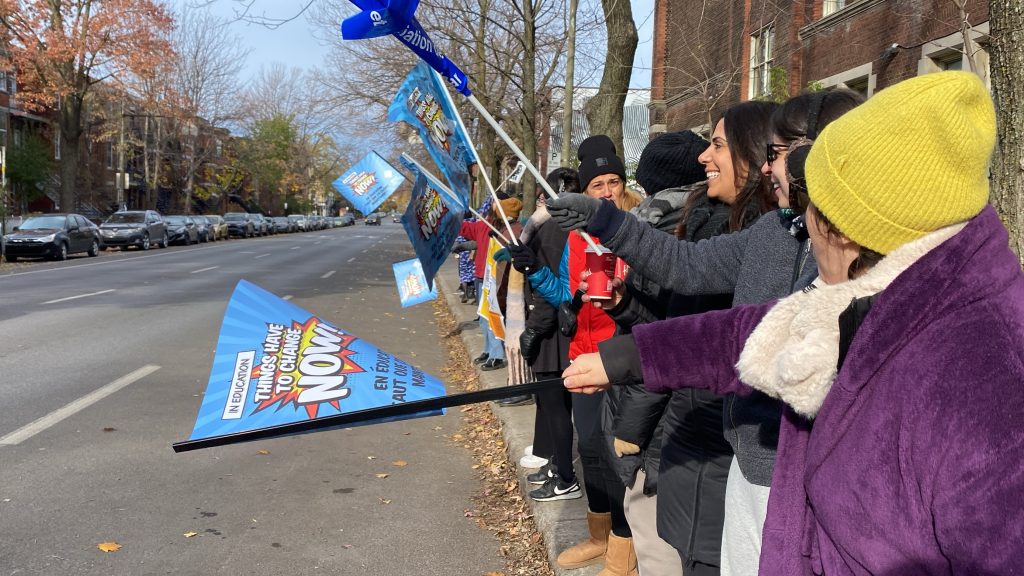
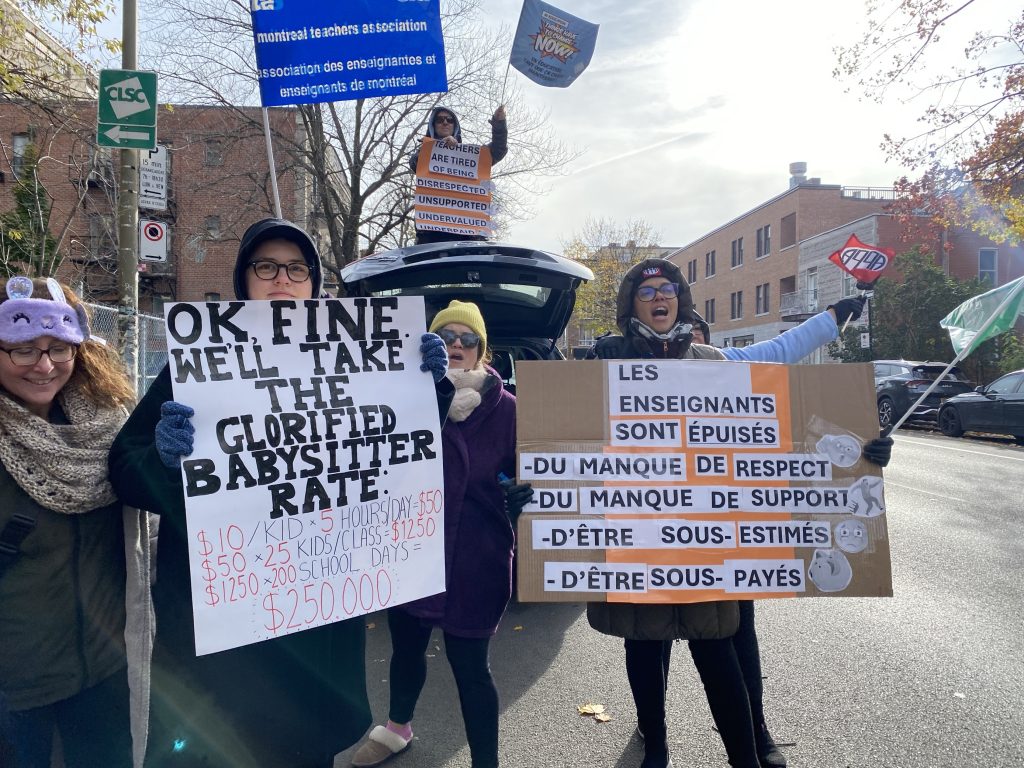
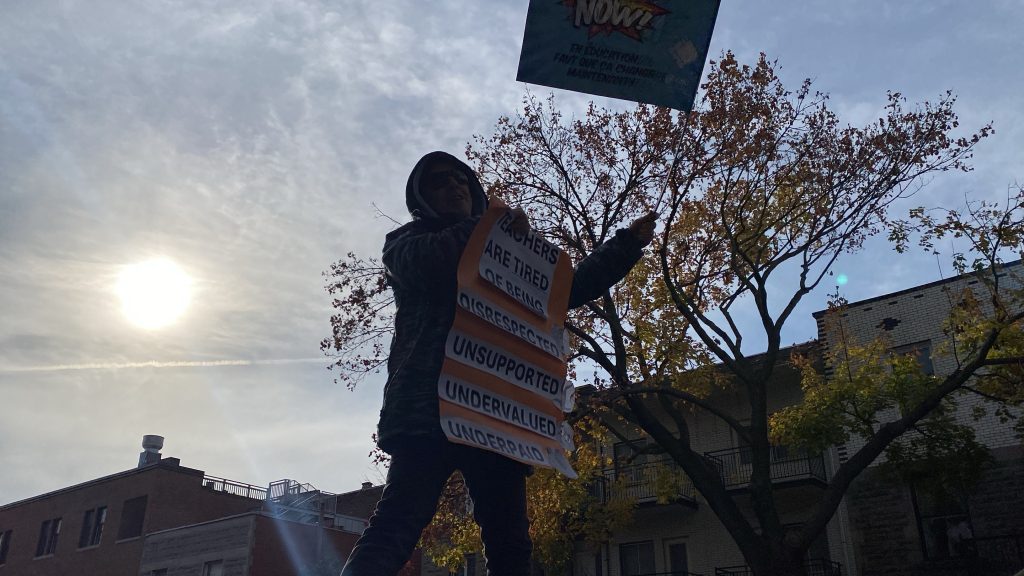
The government’s latest offer includes a 10.3 per cent salary increase over five years and a one-time payment of $1,000 to each worker – a proposal the unions have described as “paltry.”
Treasury Board President Sonia LeBel wrote social media that if unions aren’t satisfied with the offer, they should submit a constructive counter-offer.
“A negotiation cannot be one way,” LeBel wrote.
The strike will last from midnight until 10:30 a.m. in elementary and secondary schools, and until noon in junior colleges.
Educator Bernadette Samanica-Steiner says, “I’ve been teaching for almost 35 years and it’s quite sad how many times I’ve had to come out here on the picket line and picket for the rights of teachers and students alike.”
Meanwhile, healthcare workers like Couroye Dea have also long felt under paid. “Every year, they [increase by] just nine cents, it’s not good because the people work a lot. I would like more money,” Dea says.
For now, some health and social services including mental health, youth protection and medical imagery are operating at between 70 and 85 per cent capacity, depending on the department, while emergency and intensive care services will be maintained at 100 per cent.
Other unions are expected to hold strikes in the coming days, including a two-day walkout on Wednesday and Thursday by the union representing 80,000 nurses, auxiliary nurses, respiratory therapists and other health professionals.
A union representing some 65,000 Quebec teachers has also said it will launch an unlimited general strike on Nov. 23 if an agreement isn’t reached.
Music teacher, Francois Lukawecki, says, “The government has shown no interest in making movement or making a reasonable offer. And the government has known that we’d have to strike and has pushed us to this point and I think that’s shameful.”
The negotiations have been going on since the beginning of the year, after the government tabled its offer in December 2022. Both sides were still at the table as of Friday, according to Robert Comeau, the president of the Alliance du personnel professionnel et technique de la santé et des services sociaux.
The government has said that in addition to pay raises, its offer includes more money for workers and shifts it considers priorities, such as nurses working nights and weekends and teachers’ aides in primary schools. Workers who earn less than $52,000 a year would also receive an additional one per cent increase.
“That’s not a good deal, that’s not good numbers, it’s not what expected,” said Gingras. “We have to protect inflation. We have to protect workers. We have to bring workers back. We have to keep them in the public sector. “
The unions say the government’s proposal doesn’t cover inflation. They have countered with a demand for a three-year contract with annual increases tied to the inflation rate: two percentage points above inflation in the first year or $100 per week, whichever is more beneficial, followed by three points higher in the second year and four points higher in the third.
Workers like Samanica-Steiner are not giving up. “We need to be respected. We need to be looked at as essential and [the government should] put their money where their mouth is,” she says.
This report by The Canadian Press was first published Nov. 6, 2023.
Morgan Lowrie, The Canadian Press


